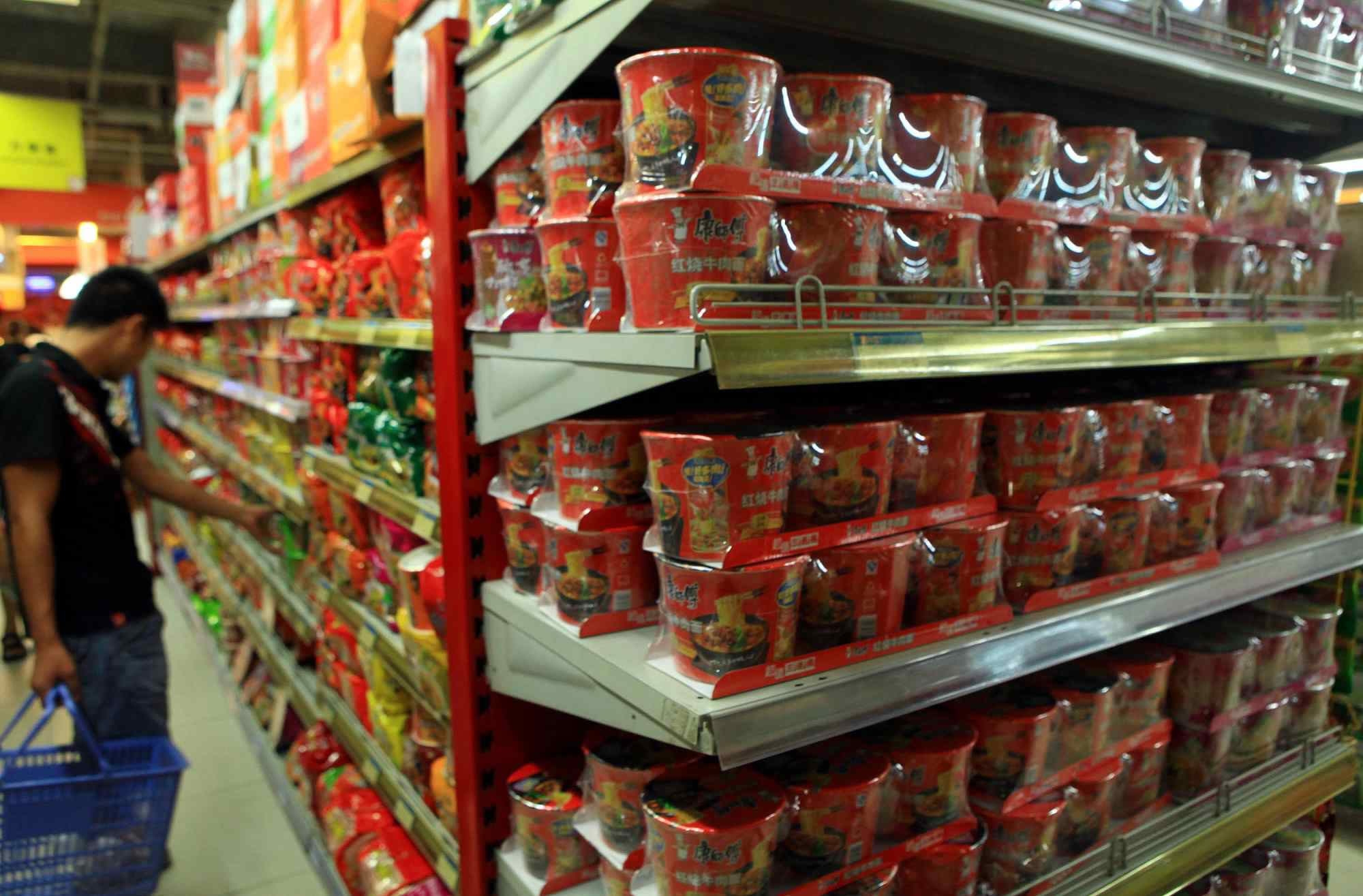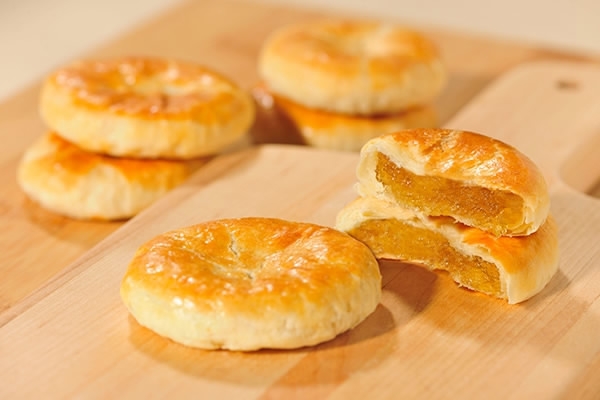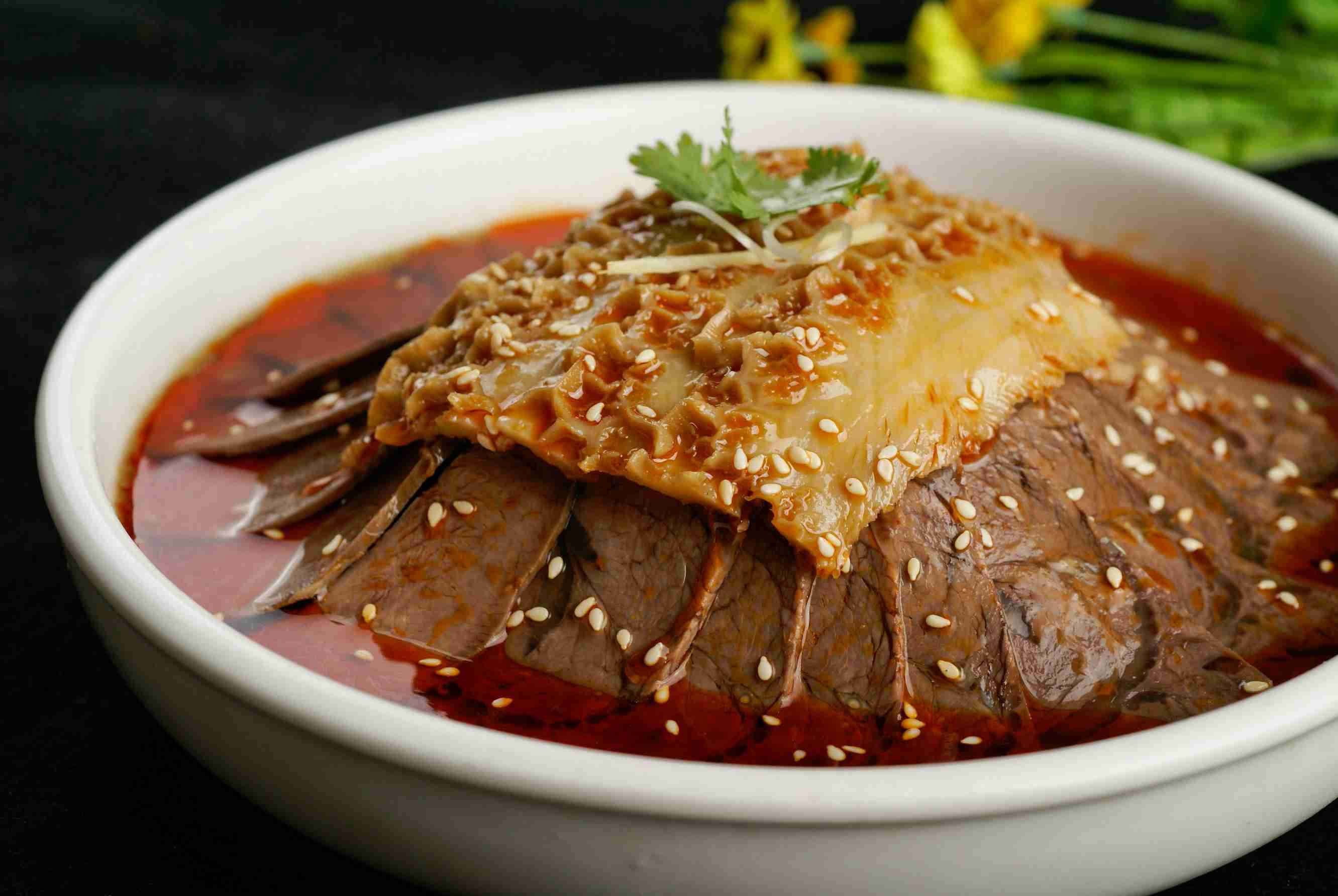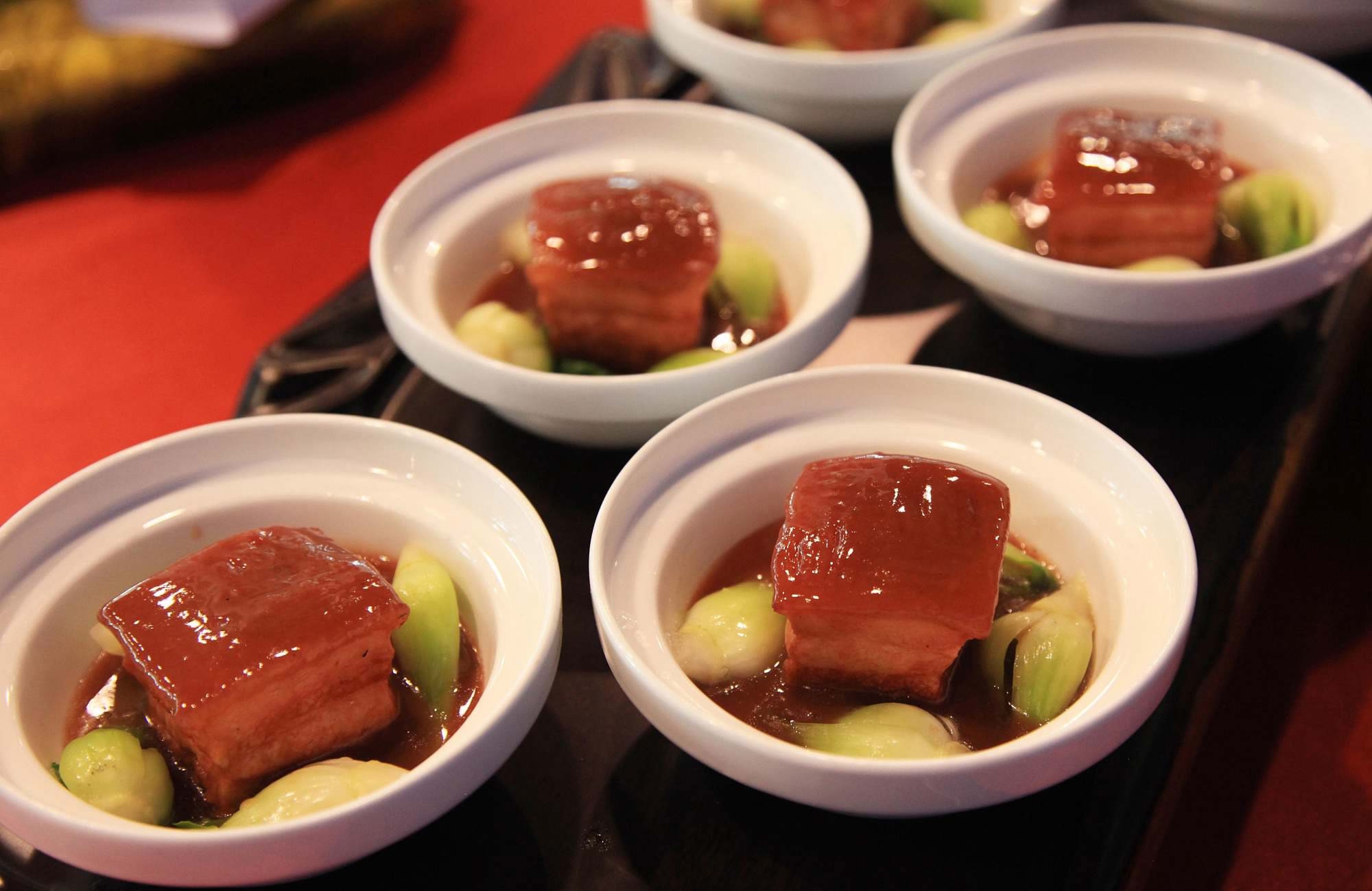China enjoys worldwide fame for the variety of its cuisine. As a result, the Chinese specialties are considered the best choice for overseas Chinese residents to bring while returning from their country as presents for friends and relatives, or for seasoning in their own kitchen.
According to a report by the World Journal, a newspaper mostly read by overseas Chinese nationals, a woman surnamed Zhang recently got into trouble because of the specialties she brought while returning to the US.
The “troublemaker” turned out to be bringing five bags of hot pot flavoring in her luggage, which contained an ingredient named “chicken powder.” The US customs in Los Angeles seized the flavoring, while examine her luggage, for animal products that are on the customs’ forbidden list.

Instant noodles lie on shelves in supermarket. /CFP Photo
Even though Zhang explained repeatedly to the customs officials that the “chicken power” was not made of chicken, the officials refused to accept her statement.
The news of the incident has gone viral on Chinese social media after being adopted by dozens of Chinese news agencies and outlets, including Xinhua, the Paper and Phoenix, with many complaining that this is not the first time Chinese food was stopped at customs due to the misunderstanding caused by their names or appearances.
Some netizens said their instant noodles were seized by customs agents due to the chicken or beef painted on the packages.
The “deceptive names” of the Chinese food

Pie of Wife, or "Sweetheart Pastry", a Guangdong cake. /CFP Photo
Chinese netizens have listed out several types of food which might be confusing to foreign cultures.
“There is no wife in ‘the pie of wife’ (or more commonly known as ‘Sweetheart Pastry’), and no ‘old godmother’ in the chili sauces Laoganma,” some joked.
The “Sweetheart Pastry” is a type of cake in south China’s Guangdong Province, which is usually made of ingredients including flour, sugar, white gourd, and honey.

Fuqi Feipian, or sliced lung by a married couple, a Chinese dish. /Photo by Yahoo
Its name was derived from the early Ming Dynasty (1368-1644), and according to the legend, Hongwu Emperor Zhu Yuanzhang’s wife made the cake for her husband during his uprising against the Yuan Dynasty (1271-1368).
Many Chinese dishes got their name from their creators. For instance, Dongpo pork, a well-known Hangzhou dish, was named after Su Dongpo, a Chinese poet during the Song Dynasty (960-1279). Fuqi Feipian, or "sliced lung by a married couple," got its name from a couple who were good at cooking the beef slices in the 1930's.

Dongpo pork, a Hangzhou dish. /CFP Photo
For the above mentioned “chicken powder,” it is actually a type of ingredient containing nucleotide, which has a similar flavor to chicken.
Some online comments joked about the foreign food that also have deceptive names, while others are taking a more optimistic approach.
Instead of focusing on the misunderstandings, many consider this part of the process for the world to gradually accept Chinese culture as well as the names of its various dishes.
10073km










